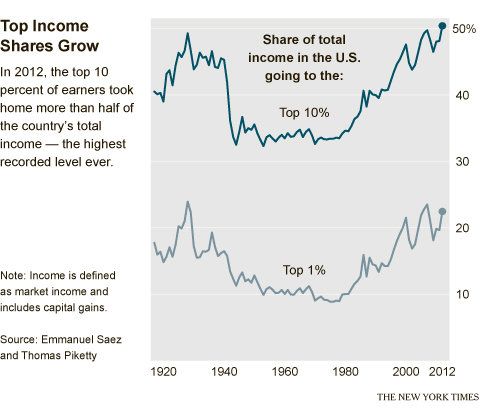“Punting the Pundits” is an Open Thread. It is a selection of editorials and opinions from around the news medium and the internet blogs. The intent is to provide a forum for your reactions and opinions, not just to the opinions presented, but to what ever you find important.
Thanks to ek hornbeck, click on the link and you can access all the past “Punting the Pundits”.
Follow us on Twitter @StarsHollowGzt
New York Times Editorial: End the Phone Data Sweeps
Once again, a thorough and independent analysis of the government’s dragnet surveillance of Americans’ phone records has found the bulk data collection to be illegal and probably unconstitutional. Just as troubling, the program was found to be virtually useless at stopping terrorism, raising the obvious question: Why does President Obama insist on continuing a costly, legally dubious program when his own appointees repeatedly find that it doesn’t work? [..]
The growing agreement among those who have studied the program closely makes it imperative that the administration, along with the program’s defenders in Congress, explain why such intrusive mass surveillance is necessary at all. If Mr. Obama knows something that contradicts what he has now been told by two panels, a federal judge and multiple members of Congress, he should tell the American people now. Otherwise, he is in essence asking for their blind faith, which is precisely what he warned against during his speech last week on the future of government surveillance.
Paul Krugman: The Populist Imperative
“The outstanding faults of the economic society in which we live are its failure to provide for full employment and its arbitrary and inequitable distribution of wealth and incomes.”
John Maynard Keynes wrote that in 1936, but it applies to our own time, too. And, in a better world, our leaders would be doing all they could to address both faults.
Unfortunately, the world we actually live in falls far short of that ideal. In fact, we should count ourselves lucky when leaders confront even one of our two great economic failures. If, as has been widely reported, President Obama devotes much of his State of the Union address to inequality, everyone should be cheering him on.
They won’t, of course. Instead, he will face two kinds of sniping. The usual suspects on the right will, as always when questions of income distribution comes up, shriek “Class warfare!” But there will also be seemingly more sober voices arguing that he has picked the wrong target, that jobs, not inequality, should be at the top of his agenda.
President Obama’s second inaugural address touched on the reality that the United States has a dysfunctional election system. Describing the nation’s progress, as well as the ways in which the nation needs to progress, the president declared, “Our journey is not complete until no citizen is forced to wait for hours to exercise the right to vote.”
Obama drew knowing applause when he spoke that truth in January 2013, as he did in November 2012, when just hours after his re-election the president noted that millions of Americans had “waited in line for a very long time” to vote. Then, in an ad lib that got more attention that his prepared remark, the president added: “By the way we have to fix that.”
On Wednesday, the process of fixing the problem-and of moving America a few more steps toward democracy-accelerated. A little.
Ralph Nader: America’s Invisible and Costly Human Rights Crisis
When the news broke years ago that U.S. forces were using torture on prisoners at Guantanamo Bay detention camp, many politicians and the public expressed appropriate horror. There was shock and disappointment that our country would resort to such inhumane, abusive actions against our fellow human beings, most of whom then were innocent victims of bounty hunters in Afghanistan.
With this frame of reverence in mind, it is unfortunate that many Americans do not contemplate-or are simply unaware of-blatant torture occurring in prisons every day right here in the United States. This form of physical and psychological violence is called many things: “isolation”, “administrative segregation”, “control units”, “secure housing” and by its most well-known designation, solitary confinement. This practice of imprisonment is widely used across our nation with disturbingly little oversight and restriction. The full extent of the use of solitary confinement is truly alarming-it is most certainly a human rights abuse and a blight on our national character.
Tim White: Finding a Needle in a Digital Haystack
LAST year the private sector spent $67.2 billion on cybersecurity services. Nevertheless, according to a recent investigation by Verizon, 60 percent of successful hacks were not detected until months after the attacks began. In the wake of recent high-profile hacker attacks against Target, Neiman Marcus and other retailers, the obvious question is: Why hasn’t all that money done any good?
It’s not for lack of trying. Much of the money is well spent, paying for armies of technical engineers and state-of-the-art security applications.
The problem is not the resources, or the personnel, or the data. It’s that many organizations simply don’t know how to arrange the data to identify suspicious patterns and weaknesses, at least not fast enough. There’s too much data, and not enough perspective.
Dean Baker: France’s Hollande is completely out of touch with modern economics
There’s no economic reason for France to cut social spending at a point when its economy has enormous excess capacity
French President François Hollande startled many of his supporters last week, along with fans of evidence-based economics everywhere, when he rejected modern economics in favor of the sayings of an early 19th-century French economist. After winning the election on a platform that the government needed to fill the gap in demand created by the collapse of asset bubbles, Hollande repeated the old line from Jean-Baptiste Say that “supply creates its own demand.”
While the appeal to French national pride may be touching, it is completely out of touch with modern economics. His plan to cut spending will have serious consequences. We should have known at least since Keynes that economies can be subject to prolonged periods of high unemployment due to inadequate demand. The problem is that the private sector does not necessarily generate enough demand to buy back everything it produces, leaving large numbers of workers unemployed and vast amounts of productive capacity sitting idle.

 On this day in 1848, A millwright named James Marshall
On this day in 1848, A millwright named James Marshall 
 On this day in 1849,
On this day in 1849,  In January 2012 we defeated the SOPA and PIPA censorship legislation with the largest Internet protest in history. A year ago this month one of that movement’s leaders, Aaron Swartz, tragically passed away.
In January 2012 we defeated the SOPA and PIPA censorship legislation with the largest Internet protest in history. A year ago this month one of that movement’s leaders, Aaron Swartz, tragically passed away.
Recent Comments